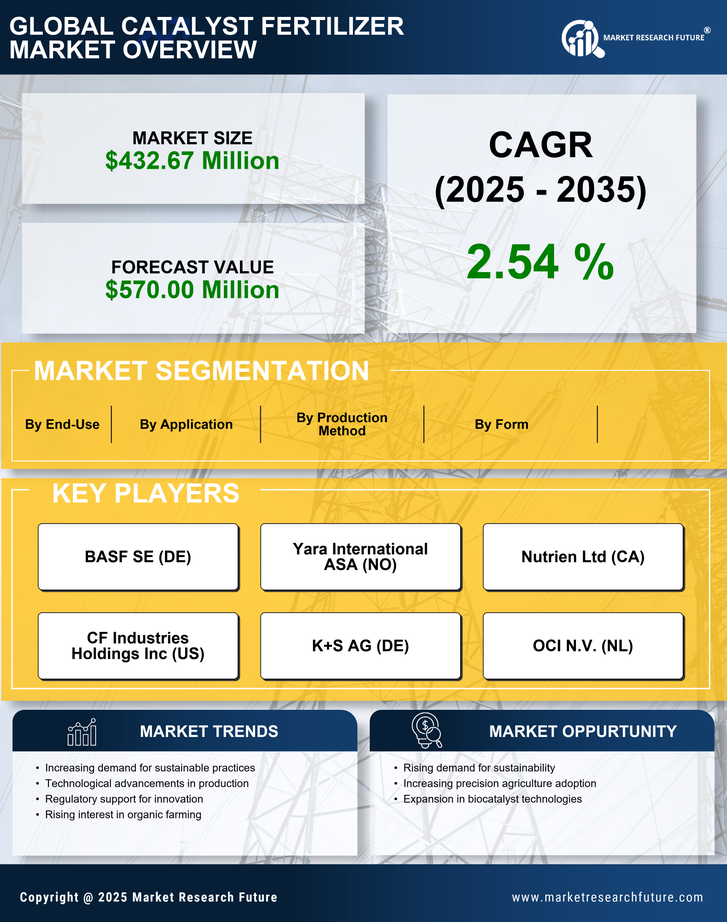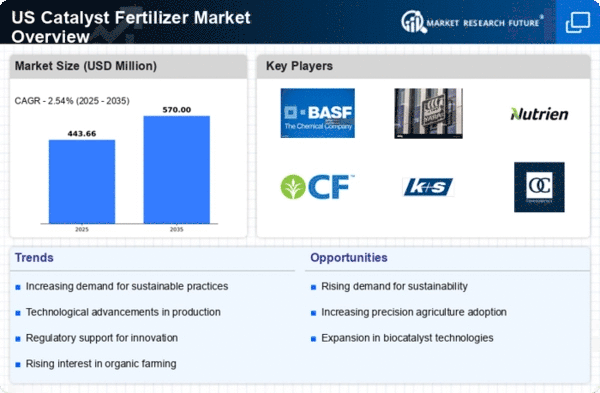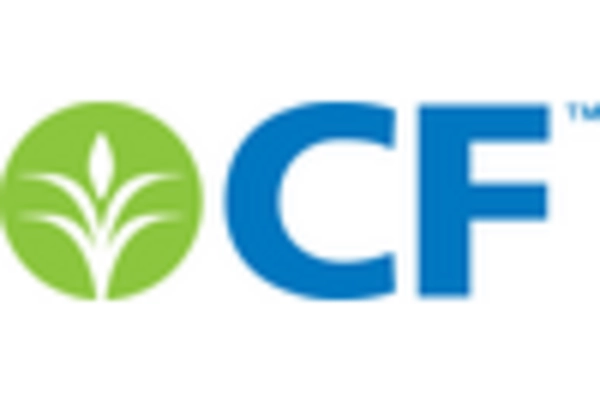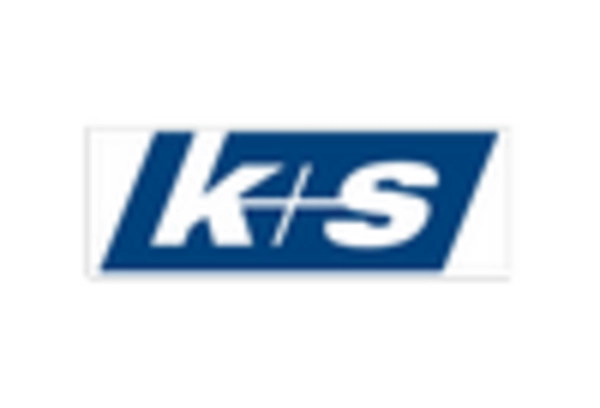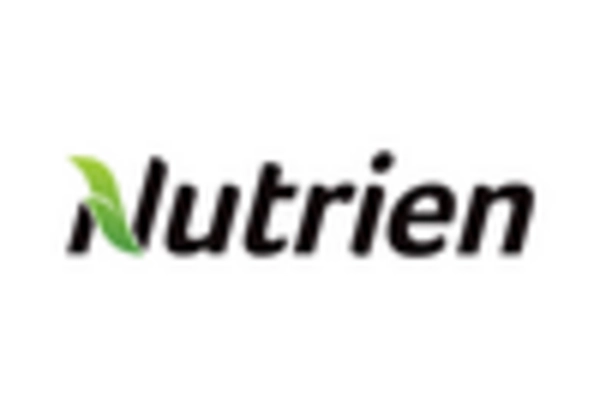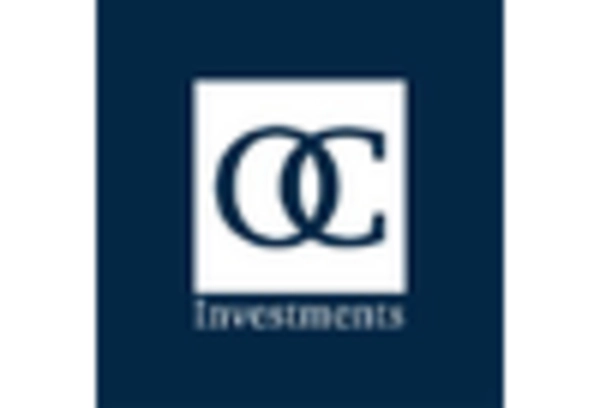Growing Awareness of Soil Health
The catalyst fertilizer market is benefiting from a growing awareness of soil health. This awareness is shared among farmers and agricultural stakeholders. As the understanding of soil microbiomes and their role in crop productivity expands, there is an increasing emphasis on using fertilizers that enhance soil quality. In the US, educational programs and workshops are promoting the importance of soil health, leading to a shift in fertilizer usage towards products that support sustainable practices. This trend is likely to drive demand for catalyst fertilizers, which are formulated to improve soil structure and nutrient availability. The market could experience a growth rate of approximately 4% as more farmers recognize the long-term benefits of investing in soil health through the use of advanced fertilizers.
Rising Demand for Food Production
The catalyst fertilizer market is experiencing a surge in demand driven by the increasing need for food production. As the global population continues to grow, projected to reach approximately 9.7 billion by 2050, the agricultural sector faces immense pressure to enhance crop yields. In the US, the agricultural output must rise significantly to meet this demand, leading to a greater reliance on catalyst fertilizers. These fertilizers improve nutrient efficiency and promote sustainable farming practices, which are essential for maximizing productivity. The market is expected to witness a compound annual growth rate (CAGR) of around 5% over the next few years, indicating a robust growth trajectory fueled by the necessity for increased food supply.
Government Initiatives and Subsidies
Government initiatives play a crucial role in shaping the catalyst fertilizer market. In the US, various federal and state programs provide financial incentives and subsidies to farmers adopting advanced fertilizer technologies. These initiatives aim to promote sustainable agricultural practices and enhance food security. For instance, the USDA has implemented programs that encourage the use of environmentally friendly fertilizers, which can lead to improved soil health and crop productivity. As a result, the catalyst fertilizer market is likely to benefit from increased adoption rates among farmers, potentially leading to a market growth of approximately 4% annually. Such support from government entities is pivotal in driving innovation and ensuring the long-term viability of the agricultural sector.
Environmental Regulations and Compliance
The catalyst fertilizer market is significantly influenced by stringent environmental regulations. These regulations aim to reduce agricultural runoff and promote sustainable practices. In the US, regulatory bodies such as the Environmental Protection Agency (EPA) enforce guidelines that require farmers to adopt fertilizers that minimize environmental impact. Compliance with these regulations often necessitates the use of catalyst fertilizers, which are designed to enhance nutrient uptake and reduce waste. This regulatory landscape is expected to propel the market forward, as farmers seek solutions that align with environmental standards. The catalyst fertilizer market could see an increase in demand of around 6% as farmers adapt to these regulations, ensuring both compliance and improved agricultural efficiency.
Technological Advancements in Fertilizer Production
Technological advancements are reshaping the catalyst fertilizer market, leading to more efficient production processes and enhanced product formulations. Innovations in chemical engineering and materials science have resulted in the development of new catalyst fertilizers that offer improved nutrient release profiles and better crop absorption rates. In the US, research institutions and private companies are investing heavily in R&D to create fertilizers that not only boost yields but also minimize environmental impact. This focus on innovation is likely to drive market growth, with projections indicating a potential increase of 5% in market size over the next few years. The integration of cutting-edge technologies is essential for meeting the evolving needs of the agricultural sector.
